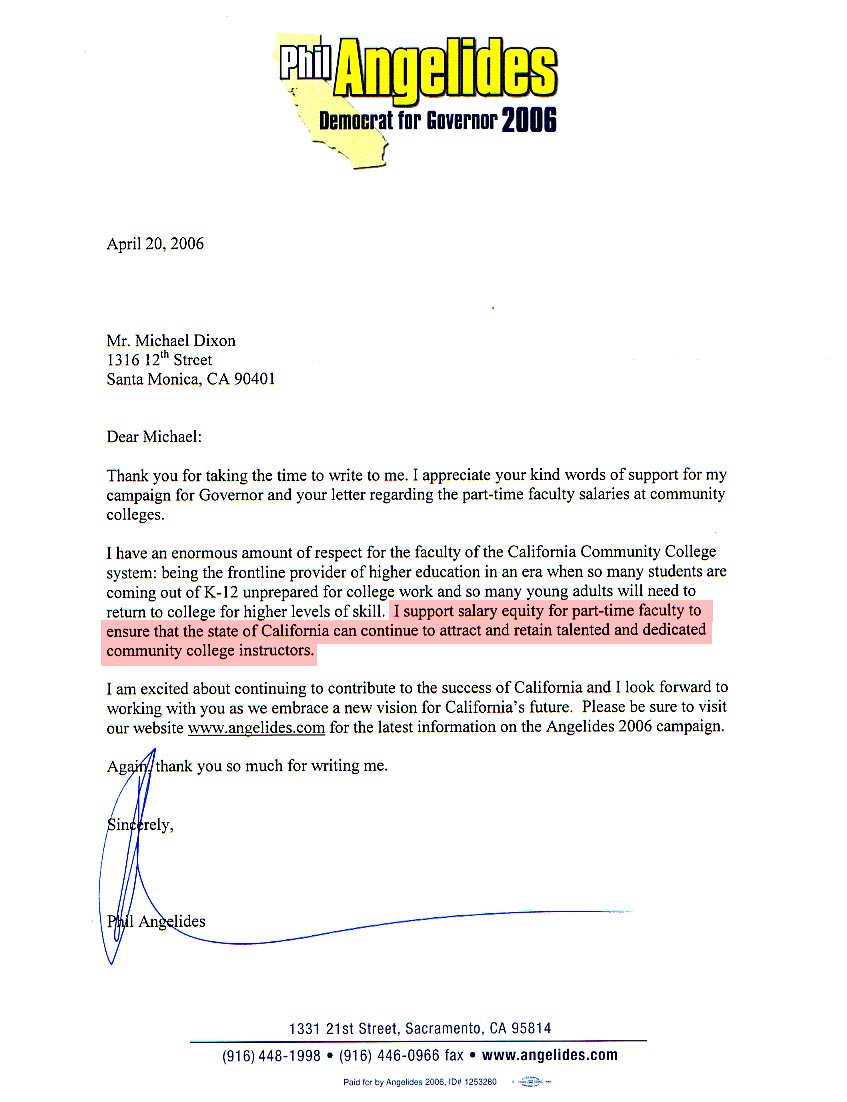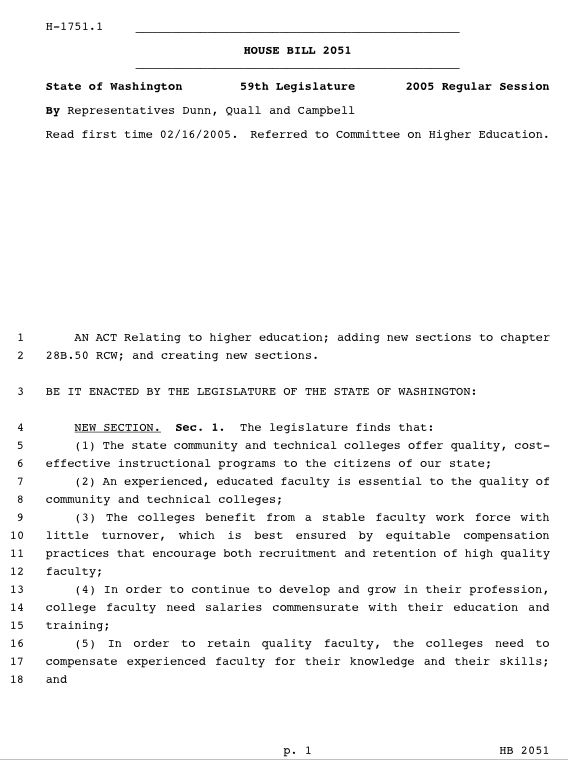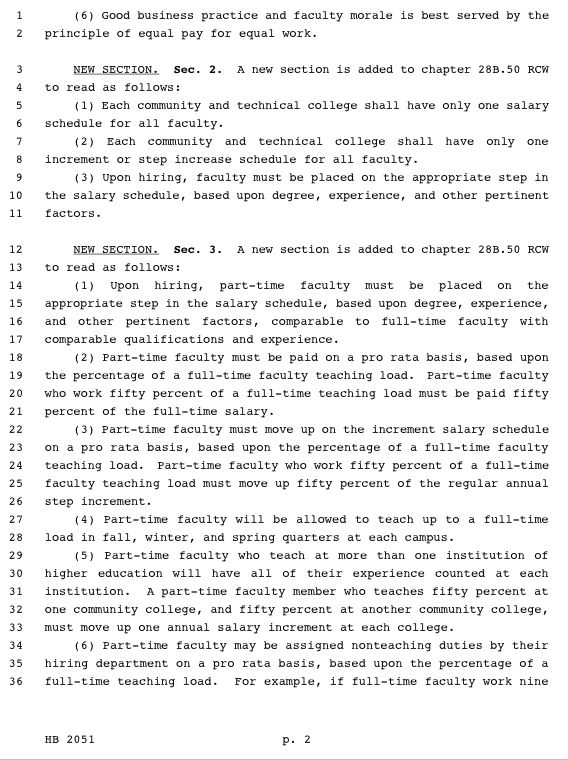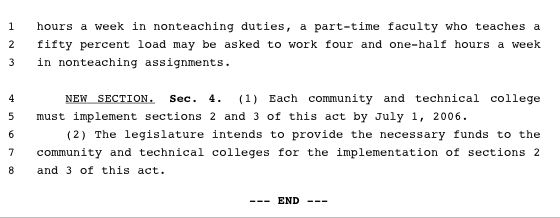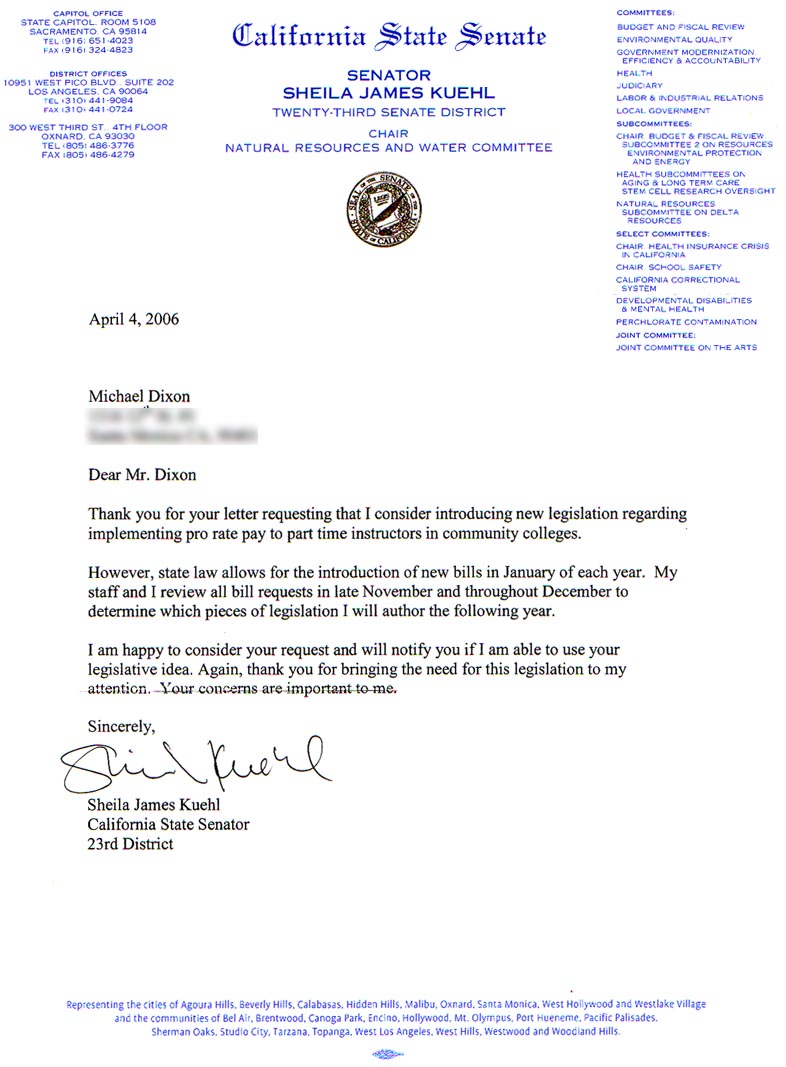The mechanism for achieving parity set up in AB 420 seems to assume that trustees and administrators have the welfare of the faculty at heart, and merely differ with us about how to look after it.
They do not.Those of us who have worked for districts where they don't even make the pretense of providing part timers with health care know this.
They literally do not care if we drop dead.And now, the board of trustees of one district has voted against even the PRINCIPLE of equal pay for part timers.
This evidence should be presented to legislators to show that if equal pay is not REQUIRED BY LAW, districts will drag their feet, and even when it is achieved in some places, try to roll it back when they get in a budget jam or just want to pad their reserves even further.
A law like this already exists for K-12, and has been proposed in Washington state. We need an equal pay law here too.
These guys don't seem to have a webpage yet, so I'm passing it along for them.
The gist is in the first paragraph.
From Adjunct Faculty United of North Orange:(DRAFT) FOR IMMEDIATE RELEASE
On Tuesday, May 9, the North Orange County Community College District Board of Trustees voted “no” on the principle of parity for part-time faculty. Adjunct Faculty United, the union that represents all part-time faculty in the district, had asked the board to take a public stand in favor of the principle of “equal pay for equal work” for all faculty.
In the North Orange County Community College District, comprised of Fullerton College, Cypress College, and the School of Continuing Education, part-time faculty (who make up two-thirds of all faculty), get about 50% of what full-time faculty make when they teach the same classes. This is different from what part-time teachers make in the K-12 system, where a teacher with the same credentials and same experience is paid at the same rate as an equally qualified full-time teacher.
Four trustees, Leonard Lahtinen, Michael Matsuda, and the two student trustees (whose votes are only advisory), voted Tuesday in favor of pay parity. Five trustees, Donna Miller, Jeff Brown, Molly McClanahan, Manny Ontiveros, and Barbara Dunsheath, voted against the resolution. Four of the five trustees who opposed the equal pay principle are up for re-election later this year.
NOCCCD Chancellor Jerry Hunter encouraged the trustees to vote “no”, saying that a positive vote would set a bad precedent, that the board should put this issue into the hands of the district negotiating team.
Denny Konshak, chief negotiator for the part-time faculty, objects, saying that it is both proper and right for the trustees to take a public stand in favor of the principle of pay parity, and then leave the details to be worked out at the negotiating table. President of Adjunct Faculty United, Sam Russo, agrees: “In the five years we’ve had our union, the district’s negotiators have staunchly refused to subscribe to any reasonable definition of pay parity for its part-time instructors. It’s time these trustees, who are publicly elected and accountable, take a firm stand on this basic principle in the American workplace and send a real message to their employees and their negotiating team.”
Several trustees stated that they were concerned that their “no” vote might send the wrong message to their part-time faculty, but still opposed the motion that would have made equal pay a goal in NOCCCD. At least one trustee seemed surprised that his district paid $30 an hour less than a neighboring community college district. Reasons for opposing the goal of pay parity with full-timers included: we don’t know what “equal” means, and the college district might be sued some time in the future if they don’t live up to this principle.
Founding president of Adjunct Faculty United, Linda Cushing, also spoke at the board meeting in favor of the principle of “equal pay for equal work” She addresses the trustees’ fear that they will be sued if they do not reach that goal. Cushing said, “At the beginning of the board meeting, everybody, including the trustees, recited the Pledge of Allegiance, saying they subscribed to the principle of ‘liberty and justice for all’. Tell me the board is equally worried about a mythical lawsuit by someone charging them with violating liberty and justice.”
A number of other community college districts, such as San Francisco City College, Cabrillo College, and San Jose-Evergreen CCD, have put themselves on record supporting the principle of equal pay for part-time faculty when the funds become available.
_________________________
For more information, contact:
Sam Russo
Office: 714-526-5759
Home: 714 –961-8058
Cell: 714-290-1685
Srusso@elcamino.cc.ca
Denny Konshak
Home: 714-962-4766
My addition:
To share your thoughts with the NOCCCD trustees:
http://nocccd.cc.ca.us/Trustees/TrusteeBios.htmNorth Orange County Community College District NOCCCD Adjunct Faculty United Donna Miller Jeff Brown Molly McClanahan Manny Ontiveros Barbara Dunsheath Chancellor Jerry Hunterpart time faculty adjunct faculty equal pay for equal work pro rata pay california community college auditor labor union aft american federation of teachers
